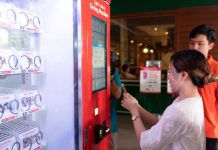
HANGZHOU, China, Nov. 17 (UPI) — Controversy surrounds a newly opened McDonald’s on the former Chinese mainland property of historical Taiwanese leader Chiang Ching-Kuo.
The two story villa in Hangzhou was home to Chiang and his father Chiang Kai-Shek from 1931 to about 1949. The home was listed as a cultural heritage site, but was closed to visitors for many years before officials decided to convert the property into a McDonald’s.
The property also formerly housed a Starbucks on its side wing and while the business may bring welcome potential income to the area, an overwhelming majority opposed the move.
90 percent of the attendees at a public meeting to determine the fate of the property opposed the project, preferring that the residence remain a purely historical site.
Zhejiang University professor Zhou Fuduo told the South China Morning Post that he and others argued that the home could serve as a historical landmark, teaching about the civil war led by the elder Chiang against Mao Zedong‘s communists, and the struggle to achieve peace in Taiwan.
“We said the social and cultural gains outweigh the commercial profits but our opinions were not taken,” he said.
An unnamed Zhejiang official dismissed the historical and cultural value of the property by pointing out that Chiang only lived in the villa for a brief time and the interior had already undergone drastic changes.
“There is no preservation apart from the main structure of the building and there’s little point in turning it into a museum,” they said.
The newly renovated structure is about 3,600 square feet and can sit up to 100 guests.





